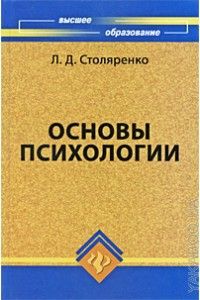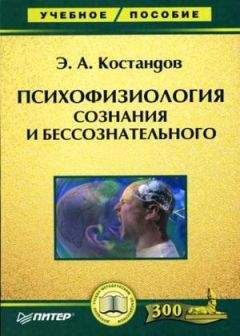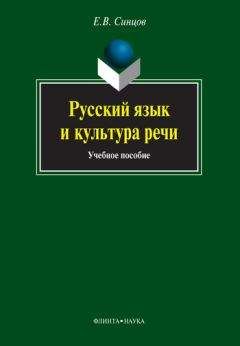Марина Холодная - Когнитивные стили. О природе индивидуального ума
Чуприкова Н. И., Ратанова Т. А. Связь показателей интеллекта и когнитивной дифференцированности у младших школьников // Вопросы психологии. 1995. № 3. С. 104–113.
Чуприкова Н. И. Психология умственного развития: Принцип дифференциации. М.: Столетие, 1997.
Шарп Д. Типы личности. Юнговская типологическая модель. Воронеж: НПО «Модэк», 1994.
Шкуратова И. П. Исследование особенностей общения в связи с когнитивным стилем личности. Дис. на соиск. уч. степ. канд. психол. наук. Л.: ЛГУ, 1983.
Шкуратова И. П. Когнитивный стиль и общение. Ростов-на-Дону: Изд-во РПУ, 1994.
Шкуратова И. П. Исследование стиля в психологии: оппозиция или консолидация. Комментарии // Стиль человека: психологический анализ / Под ред А. В. Либина. М.: Смысл, 1998. С. 13–33; 125–162.
Шмелев А. Г., Кондратьева А. С. Психосемантический анализ стилей межличностного восприятия в семье // Семья и формирование личности / Под ред. А. А. Бодалева. М.: Изд-во МГУ, 1981. С. 12–24.
Юнг К. Г. Психологические типы. М.: Алфавит, 1992.
Южанинова А. Л. Исследование сложности когнитивной дифференциации и интеграции в связи с уровнем социального интеллекта // Когнитивные стили. Тезисы научно-практич. семинара. Таллинн, 1986. С. 159–162.
Южанинова А. Л. Стилевые особенности межличностного познания и характеристики общения. Автореф. дис. на соиск. уч. степ. канд. психол. наук. Л.: ЛГУ, 1988.
Южанинова А. Л. Типы затруднений в общении у лиц с низким уровнем когнитивной сложности // Психологические трудности общения: Диагностика и коррекция. Ростов-на-Дону, 1990. С. 21–23.
Яничев П. И. Соотношение временных параметров в описании ситуаций в связи с когнитивным стилем // Когнитивные стили. Тезисы научно-практич. семинара. Таллинн, 1986. С. 111–115.
Яничев П. И., Богданова О. В. Некоторые особенности дезинтеграции вербально-образных структур // Когнитивные стили. Тезисы научно-практич. семинара. Таллинн, 1986. С. 115–119.
Abramson L. Y., Sackeim H. A. A paradox in depression: Uncontrollability and self-blame // Psychol. Bulletin. 1977. V. 84 (5). P. 838–851.
Adejumo D. Effect of cognitive styles on strategies for comprechension of prose // Perc. and Motor Skills. 1983. V. 56. P. 859–863.
Allison C. W., Hayes J. The Learning Style Questionnaire: an alternative to Kolb’s inventory? // J. of Management Studies. 1988. V. 25. P. 269–281.
Allison C. W., Hayes J. Validity of the Learning Styles Questionnaire // Psychol. Reports. 1990. V. 67. P. 859–866.
Allison J., Hayes C. The cognitive style index, a measure of intuition-analysis for organization research // J. of Management Studies. 1996. V. 33 (1). P. 119–135.
Ausubel D. P. Educational psychology: A cognitive review. N. Y., Chicago, 1968.
Berry J. W. Human ecology and cognitive style. N. Y.: Halstead Press, 1976.
Biery J. Cognitive complexity-simplicity and predictive behaviour // J. of Abnormal and Soc. Psychology. 1955. V. 51. P. 263–268.
Biery J., Messerley S. Differences in perceptual and cognitive behavior as a function of experience type // J. of Consulting Psychology. 1957. V. 21. P. 217–221.
Block J., Block J. H., Harrington P. Some misgivings about the Matching Familiar Figures Test as measure of reflection-impulsivity // Devel. Psychology. 1974. V. 10(5). P. 611–632.
Bloom-Feshbach J. Differentiation: Field-dependence spatial ability and hemispheric specialization // J. of Personality. 1980. V. 48. P. 135–148.
Borkowski J. C., Peck V. A., Reid M. K. Impulsivity and strategy transfer: Metamemory as mediator // Child. Development. 1983. V. 54 (2). P. 459–473.
Bottenberg E. N. Kognitive attituden und intelligenz //Psychologische Beiträge. 1970. B. XII (3). S. 426–440.
Briggs-Myers I., McCaulley M. H. (1985). Manual: A guide to the development and use of the Myers Briggs Type Indicator. Consulting Psychologist Press.
Broverman D. M. Dimensions of cognitive styles // J. of Personality. 1960. V. 28(2). P. 167–185.
Bruner J. The course of cognitive growth // Amer. Psychologist. 1964. V. 19 (1). P. 1–15.
Bruner J. S., Tajfel H. Cognitive risk and environmental change // J. of Abnormal and Soc. Psychology. 1961. V. 62. P. 231–241.
Bussi W., Freedman N. Language and hand: The dimension of referential competence // J. of Personality. 1978. V. 46. P. 594–622.
Canino C., Cicchelli T. Cognitive styles, computerized treatments on mathematics achievement and reaction to treatments // J. of Educat. Computing Research. 1988. V. 4. P. 253–264.
Carrillo-de-la-Pena M. T., Otero J. M., Romero E. Comparison among various methods of assessment of impulsiveness // Pers. and Motor Skills. 1993. V. 77. P. 567–575.
Chalip L. Learning in the Group Embedded Figures Test // Perc. and Motor Skills. 1979. V. 9 (5). P. 1070.
Clauss G. Zur Psychologie kognitiver stile. Neuere Entwiklungen im Grenzbereich von Allgemeiner und Persönlichkeitpsychologie // Zur psychologische Persönlichkeitforschung. Berlin, 1978. S. 122–137.
Cohen J. D., Dunbar K., McClelland J. L. On the control of automatic processes: A parallel distributed processing account of the Stroop effect // Psychol. Review. 1990. V. 97. P. 332–361.
Cooper M., Lyne R. C. Relatioships between psychological differentiation and Cattell’s personality traits // J. of Psychology. 1977. V. 97. P. 135–139.
Cunningham D. M., Ridley S. E., Cambell A. Performance of field-independent and dependent college students, and their «fixed» and mobile subtypes on two formats of cognitive task // Perc. and Motor Skills. 1988. V. 66 (1). P. 311–317.
Curry L. Integrating concepts of cognitive and learning style: A review with attention to psychometric standards. Ottawa, ON: Canadian College of HSE, 1987.
Dargel R., Kirk R. E. Note on relation of anxiety to field dependency // Perc. and Motor Skills. 1973. V. 37. P. 218.
Davis J. K., Frank B. N. Learning and memory of field independent-dependent individuals // J. Exper. Research in Personality. 1979. V. 13. P. 469–479.
Dunn R., Dunn K., Price G. E. Learning Style Inventory. Lawrence, KS: Price Systems, 1989.
Entwistle N. J. Styles of teaching and learning: An integrated outline of educational psychology for students, teachers and lectures. Chichester: Wiley, 1981.
Eysenk H. J., Eysenk M. W. Personality and individual differences. N. J.: Plenum Press, 1985.
Faterson H. F. Articulateness of experience: an extension of the field-dependence-independence concept // S. Messick, J. Ross (Eds.). Measurement in Personality and cognition. N. Y., 1962. P. 171–181.
Fillenbaum S. Some stilistic aspects of categorising behavior // J. of Personality. 1959. V. 27. P. 187–195.
Finch A. J., Spirito A., Brophy C. J. Reflection-impulsivity and WISC-R performance in behaviour-problem children // J. of Psychology. 1982. V. 111 (2). P. 217–221.
Finley G. E., Delgado-Hachey M. Category breadth and memory in yonger and older adults // J. of Genenic Psychology. 1989. V. 150 (1). P. 119–120.
Flexer B. K., Roberge J. J. IQ, field dependence-independence and the development of formal operational thought // J. Gener. Psychol. 1980. V. 103. P. 191–201.
Frank B. M. Flexibility of information processing and the memory of field-independent and field-dependent learners // J. Exper. Research in Personality. 1983. V. 17. P. 89–96.
Gardner R. W., Holzman P. S., Klein G. S., Linton H. B., Spence D. P. Cognitive control. A study of individual consistencies in cognitive behavior. Psychological Issues. Monograph 4. V. 1. N. Y., 1959.
Gardner R. W., Jackson D. N., Messick S. J. Personality organization in cognitive controls and intellectual abilities. Psychological Issues. Monograph 8. V. 2. 1960.
Gardner R. W., Lohrenz L. J., Schoen R. A. Cognitive control of differentiation in perception persons and objects // Perc. and Motor Skills. 1968. V. 26. P. 311–330.
Gardner R. W., Schoen R. A. Differentiation and abstraction in concept formation // P. D. Warr (Ed.). Thought and Personality. Baltimor, 1970. P. 55–92.
Gardner R. W., Long R. J. Cognitive controls of attention and inhibition: A study of individual consistencies // Brit. J. of Psychology. 1962 а. V. 53 (4). P. 381–388.
Gardner R. W., Long R. J. Control, defence and centration effect: A study of scanning behaviour // Brit. J. of Psychology. 1962 б. V. 53 (2). P. 129–140.
Gargiulo R. M. Reflection/impulsivity and field dependence/independence in retarded and nonretarded children of equal mental age // Bulletin of Psychonomic Society. 1982. V. 19 (2). P. 74–77. Gell-Mann M. Complexity and complex adaptive sistem // Evolution of human languages / Gell-Mann, J. A. Hawkins (Eds.). Reading, MA, 1992.
Gibbs J. C. et. al. Relations between moral judgment, moral courage and field independence // Child Development. 1986. V. 57 (1). P. 185–193.
Gilpin A. R. Instructional variations and adults conceptual tempo performance // J. of General Psychology. 1979. V. 100. P. 53–61.
Glaser M. O., Glaser W. R. Time course analysis of the Stroop phenomenon // J. of Exper. Psychol.: Human Perc. and Perf. 1982. V. 8. P. 875–894.
Globerson T. Mental capacity, mental effort and cognitive style // Developmental review. 1983. V. 3. P. 292–302.
Goldsmith R. E., Nugent N. Innovativeness and cognitive complexity: A second look // Psychological Reports. 1984. V. 55(2). P. 431–438.
Goldstein K., Schreer V. Abstract and concrete behavior: an experimental study with special tufs // Psychol. Monogr. 1941. V. 53. N 239.
Goldstein K. M., Blackman S. Cognitive style: Five approaches and relevant research. N. Y.: John Wiley & Sons Inc., 1978.
Gregorc A. R. Style delineator. Maynard, MA: Gabriel Systems, 1982. Groot C. The interaction of cognition and motivation in performance on test of field dependence-independence // Human assessment: Cognition and motivation. Athens, 1984. P. 217–230.
Guilford J. P. The nature of human intelligence. N. Y.: MC, Graw Hill, 1967.
Guilford J. P. Cognitive styles: What are they? // Educat. and Psychol. Measurement. 1980. V. 40 (3). P. 715–735.
Guilford J. P. Is some creative thinking irrational? // J. of creative behavior. 1982. V. 16 (3). P. 151–154.
Guthrie K. H. Locus of control and field independence-dependence as factors in the development of moral judgment // J. of Genetic Psychology. 1985. V. 146 (1). P. 13–18.
Hall V. C., Russell W. J. Multitrait-Multimethod analysis of conceptual tempo // J. of Educat. Psychology. 1974. V. 66 (6). P. 932–939.
Hamilton V. The size constancy problem in schizofrenia: A cognitive skill analysis // British J. of Psychology. 1972. V. 63 (1). P. 73–84.
Hansson S. B., Ryden O. D., Jonson P. Field-dependence/independence: ability in relation to mobility-fixity // Perc. and Motor Skills. 1986. V. 63 (1). P. 279–293.
Haney G., Zimbardo P. G. Social roles and role-plaing: observation from the Stanford Prison Study // Behavior and social science teacher. 1973. V. 1. P. 708–715.
Haronian F., Sugerman A. A. Fixed and mobile field independence: Review of studies relevant to Werner’s dimension // Psychol. Reports. 1967. V. 21. P. 41–57.
Harvey O. J., Hunt D. E., Schroder H. M. Conceptual system and personality organization. N. Y.: John Wiley, Inc., 1961.
Harvey O. J. System structure, flexibility and creativity // Experience structure and adoptability / O. J. Harvey (Ed.). N. Y.: Springer Publ. Company, Inc., 1966. P. 39–65.
Harvey O. J. Conceptual system and attitude change // Thought and personality / P. B. Warr (Ed.). Baltimor, 1970. P. 315–333.
Hayes J., Allison C. W. Matching learning style and instructional strategy: An application of the person-environment interaction paradigm // Perc. and Motor Skills. 1993. V. 76. P. 63–79.
Helode R. D. Cognitive and noncognitive correlates of the Stroop interference effect // J. of Psychol. Researches. 1982. V.26 (3). P. 142–145.
Holzman Ph.S., Gardner R. W. Leveling-sharpening and memory organization // J. of Abnorm. and Soc. Psychology. 1960. V. 61 (2). P. 176–180.
Holzman Ph. Skanning: A principle of reality contact // Perc. and Motor Skills. 1966. V. 23. P. 835–844.
Honey P., Mumford A. Using your learning styles. Maidenhead: Honey, 1986.
Hooper F. H., Hooper J. O., Colbert K. K. Personality and memory correlates of intellectual functioning: Young adulthood to old age. Basel, N. Y., 1984.
Hunt E., Lunneborg C., Levis J. What does it mean to be high verbal? // Cognitive Psychology. 1975. V. 7. P. 194–227.



